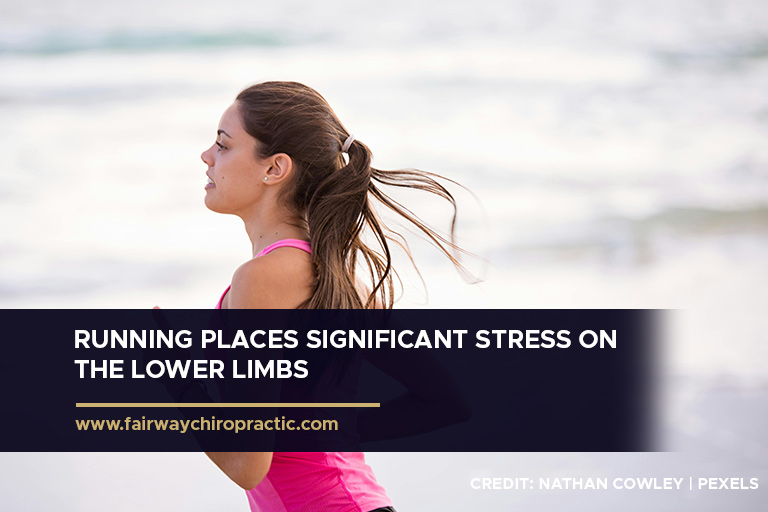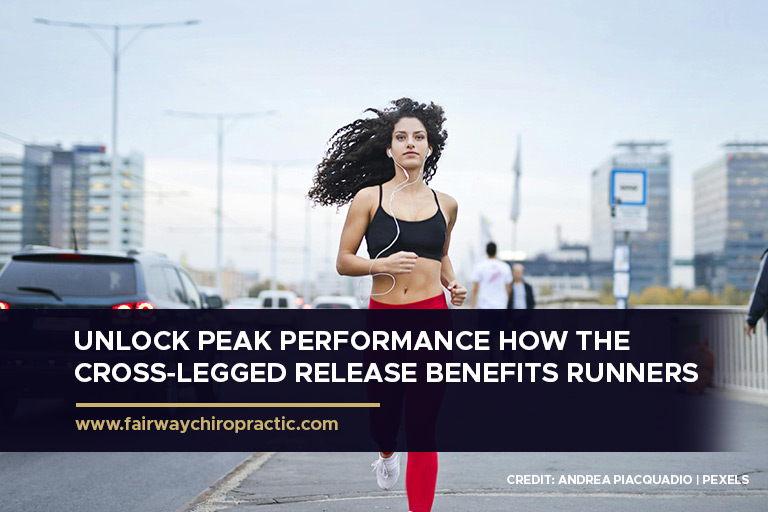Runners consistently seek methods to enhance their performance, reduce injury risk, and recover more efficiently. Among various techniques that promise these benefits, the cross-legged release stands out for its simplicity and effectiveness. This technique, often overlooked, can be a game-changer for runners, aiding in the improvement of flexibility, reduction of muscle tightness, and enhancement of overall performance. Incorporating the cross-legged release into a regular training routine can help unlock peak performance levels, making every run more enjoyable and effective.
The Mechanics of Running and Muscular Health

Running, as a high-impact activity, places significant stress on the body, particularly the lower limbs, hips, and back, resulting in various injuries.
Proper mechanics and muscular health can mitigate these stresses, leading to improved efficiency and reduced injury risk.
-
Impact of Running on the Body
Running influences the body in several ways, emphasizing the importance of maintaining good muscular health:
-
-
Joint Stress
-
Each step generates a force up to several times the runner’s body weight, impacting joints from the ankles to the spine.
-
-
Muscle Overuse
-
Repetitive motion can lead to overuse of certain muscle groups, particularly the calves, hamstrings, quadriceps, and glutes.
-
-
Tendon Strain
-
High-impact forces and repetitive movements strain tendons, increasing the risk of issues like Achilles tendinitis and runner’s knee.
-
Importance of Flexibility and Mobility
Flexibility and mobility are foundational for effective running mechanics and injury prevention:
-
-
Enhanced Movement Efficiency
-
Greater flexibility and mobility contribute to a more efficient running form by improving stride length and reducing energy expenditure.
-
-
Injury Prevention
-
Improved flexibility and mobility help balance muscle strength and reduce the risk of strains, sprains, and other soft tissue injuries.
-
-
Faster Recovery
-
Flexible muscles and mobile joints recover more quickly from the stresses of running, reducing downtime and discomfort.
-
Key Areas to Focus On
To support the mechanics of running and promote muscular health, attention should be given to the following areas:
-
-
Hip Flexors and Glutes
-
These muscles are vital for a strong, efficient stride. Stretching and strengthening can improve running mechanics and reduce the risk of injury.
-
-
Hamstrings and Quadriceps
-
Balancing the strength and flexibility of these opposing muscle groups is essential for knee health and overall running efficiency.
-
-
Calves and Achilles Tendon
-
The calves absorb a lot of impact during running. Flexibility and strength in this area can prevent common injuries like calf strains and Achilles tendinitis.
-
-
Lower Back and Core
-
A strong core and flexible lower back support proper posture and alignment during running, which is crucial for efficient movement and injury prevention.
Key Benefits for Runners
The cross-legged release, when incorporated into a runner’s routine, offers several key benefits that directly contribute to enhanced running performance and reduced injury risk.
-
Enhanced Muscular Balance and Symmetry
Running often leads to muscular imbalances due to its repetitive nature and the dominance of certain muscle groups. The cross-legged release helps address these imbalances by stretching tight muscles, promoting symmetry, and reducing the risk of injury caused by uneven muscle use.
-
Prevention of Overuse Injuries
Overuse injuries are common among runners and often result from tight muscles and a lack of flexibility. By improving flexibility in the hips and lower back, the cross-legged release helps mitigate the factors that contribute to overuse injuries, such as IT band syndrome and runner’s knee.
-
Optimized Running Efficiency
Flexibility and mobility contribute to more fluid and efficient running movements. When muscles are free from excessive tightness, runners can achieve a more natural stride pattern and use less energy to cover the same distance, improving overall running efficiency.
-
Improved Posture
The cross-legged release also benefits posture, for running performance. Improved hip mobility equals better running proper which helps maintain running efficiency and prevent injuries related to poor form.
-
Increased Circulation and Faster Recovery
Stretching exercises like the cross-legged release can increase blood flow to the stretched muscles, delivering nutrients and oxygen more effectively. This not only helps in the faster recovery of the muscles post-exercise but also prepares them for future runs by reducing stiffness and soreness.
Implementing the Cross-Legged Release Technique
According to a study, “the most common Running-Related Overuse Injury sites include the foot/ankle (30.9%) and knee (22.2%).” This makes it imperative to condition your legs. Incorporating the cross-legged release into your routine is straightforward. Here’s a step-by-step guide to ensure you’re performing the stretch correctly for maximum benefit:
-
Starting Position
Sit in a chair with your legs extended in front of you.
-
Cross Your Legs
Gently cross one leg over the other, placing your ankle over the knee of the other leg
-
Apply Gentle Pressure
Part 1. Pull your knee of crossed leg up and over toward the opposite shoulder, stopping when you feel a mild-mod stretch. Hold the position for 15-30 seconds
Part 2. Push your knee of the crossed knee down, stopping when you feel a mild-mod stretch. Hold the position for 15-30 seconds
-
Switch Legs and Repeat
-
Maintenance
This should be done several times per day if you are suffering with hip/knee pain currently; or daily as part of your regular training routine.
Beyond Stretching: A Holistic Approach

Achieving peak performance in running involves more than just physical training and stretching. Incorporating the cross-legged release into a broader strategy that includes adequate nutrition, hydration, mental training, and proper rest will ensure you’re not only running at your best but also promoting long-term health and injury prevention.
-
Nutrition and Hydration
A balanced diet rich in nutrients and adequate hydration play a critical role in performance and recovery. Ensuring you’re fueling your body with the right foods and enough fluids before, during, and after runs is essential for maintaining energy levels and facilitating muscle repair.
-
Mental Training
Mental resilience and a positive mindset can significantly impact your running performance and enjoyment. Techniques such as visualization, goal-setting, and mindfulness can enhance focus, motivation, and the ability to push through challenging moments.
-
Recovery and Rest
Recovery strategies, including rest days, massage, and cold therapy, are crucial for preventing overtraining and injury. Listening to your body and allowing adequate time for recovery ensures you’re ready for your next run, both physically and mentally.
-
Chiropractic Care
Integrating chiropractic care, including adjustments and therapies offered by professionals, can complement the benefits of the cross-legged release. Chiropractic care focuses on the alignment and health of the spine and musculoskeletal system, which is vital for runners. Regular visits to a chiropractor can enhance joint mobility, alleviate pain, and improve overall body function. For runners looking to optimize their performance and health chiropractic care offers a synergistic approach to achieving peak condition.
When to Seek Professional Help
While the cross-legged release is generally safe and beneficial for most runners, there are situations where professional advice and intervention might be necessary. If you experience persistent pain or discomfort during or after performing this stretch, it might be indicative of an underlying issue that requires attention.
Visiting a pain clinic can provide you with a comprehensive evaluation and tailored treatment options to address your specific needs. Professionals at a pain clinic can offer guidance on proper stretching techniques, injury prevention strategies, and other therapeutic interventions to support your running goals.
Get in Touch With Fairway Chiropractic Centre
The cross-legged release offers a simple yet effective way for runners to enhance their flexibility, reduce the risk of injury, and improve performance. When combined with professional chiropractic care and the holistic support of a pain clinic, runners can unlock their peak performance, ensuring they not only achieve their running goals but also maintain optimal health and wellbeing. Whether you’re a seasoned marathoner or a casual jogger, incorporating the cross-legged release into your routine can make a significant difference in your running journey.
For tailored advice and professional support, contact Fairway Chiropractic Centre. Our team is dedicated to helping you achieve your health and performance goals, offering a range of services designed to support runners of all levels.
Reach out to us at: 519-748-5535.











